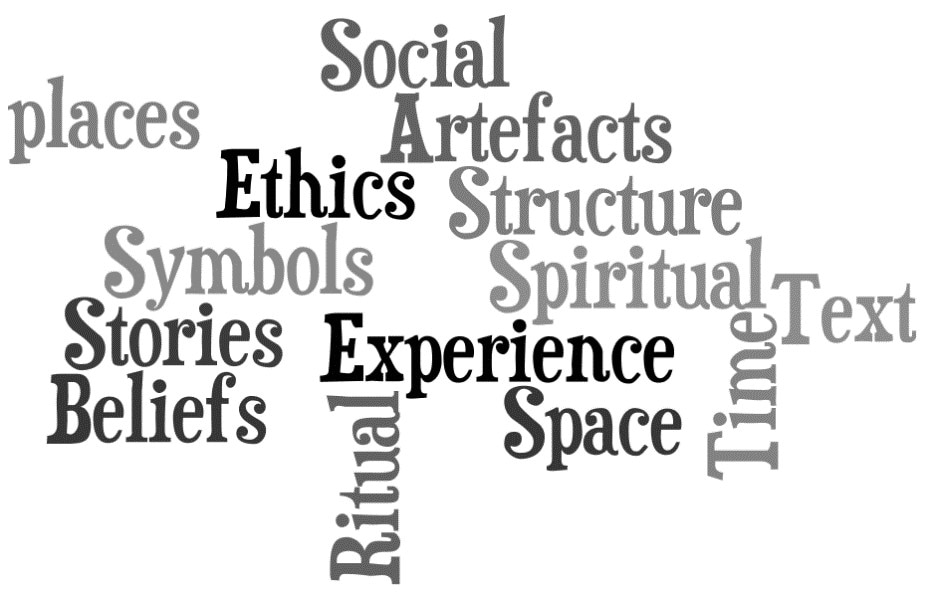|
What is the role of the aspects in responding to the search for meaning?
The aspects of religious traditions become integrated into the personal search for meaning. Within different religious traditions certain aspects may be given greater weight in coming to the faith, expressing faith or transmitting the faith. The forming of a world view within a religious system of meaning and belief is a complex task that necessarily involves many if not all of the aspects of the religious tradition. Ritual and symbols are tangible reminders of the metanarrative or world view that give meaning and purpose to the community and its members, connecting them into the scared dimension of their lives. These ritual actions may be found in structured religious experiences such as liturgies or rites, ceremonies or worship where formalised processes of story-telling, interpretation of story, prayer formulas, and particular forms of music or movement and even dance, may be used to recall or re-enact particular beliefs. Sacred stories, as well as other oral and written texts of the tradition may be used to pass on the essential beliefs, values and heritage of the community. The ethical and moral codes of the religious tradition help to set parameters for engagement within the religious community as well as engagement by members of the religious tradition often within a pluralist, multicultural, cosmopolitan and often secular world. The social structure of the tradition offers authoritative parameters for the use of sacred time and sacred spaces as well as for the role of other members of the community, sometimes using considerations such as gender, personal qualities and religious background or training of the adherents in determining suitability for other roles. Spiritual experiences are a deep engagement with the beliefs of the tradition, with special reference to ultimate reality through feelings and intellect. At times, deep spiritual experiences are aligned with sacred places, shrines or sanctuaries, where special encounters of otherness are reported and impact strongly on the personal search for meaning. |
How do the aspects of Religion relate to each other?
The interrelationship of the aspects of religious traditions is complex and complementary. They have a transformative power witnessed in the enthusiasm of adherents at religious festivals and ceremonies. They are also significant in the way that offer a context for expressing faith in times of personal hardship and in the face of challenging circumstances. Aspects are a framework that supports individuals and groups to live their faith. They are concrete expressions of the faith that give meaning and purpose for adherents. The spiritual experiences that arise from the aspects of religious traditions build a collective memory that gives meaning to both the experience itself and to the world. The aspects are the way in which religious traditions develop leaders and charismatic figures who can acts as role models and teachers. The aspects are the teaching mechanism by which younger adherents and new believers are ushered into the practice of the faith. The aspects become the shapers of the world view of adherents and provide an ongoing challenge to recommit and renewal for longer term members of the tradition. The aspects provide a set of foci for the individual to engage with their beliefs in a rhythmic way, naming ultimate reality is ways particular to the tradition. They are sources of communal experience that can strengthen and individual and community faith by reinforcing the religious identity of the group. Aspects are the means by which authority is determined within the religious tradition and the way in which beliefs are integrated in the tradition. The answers to life’s existential questions find their expression in the aspects of religious traditions. |
Proudly powered by Weebly
